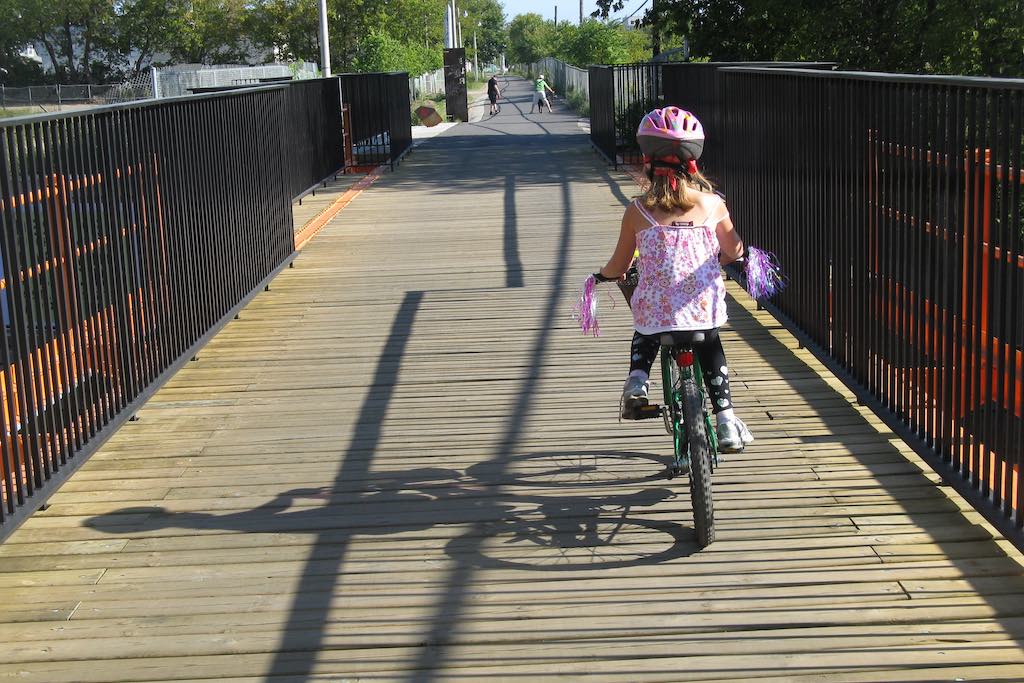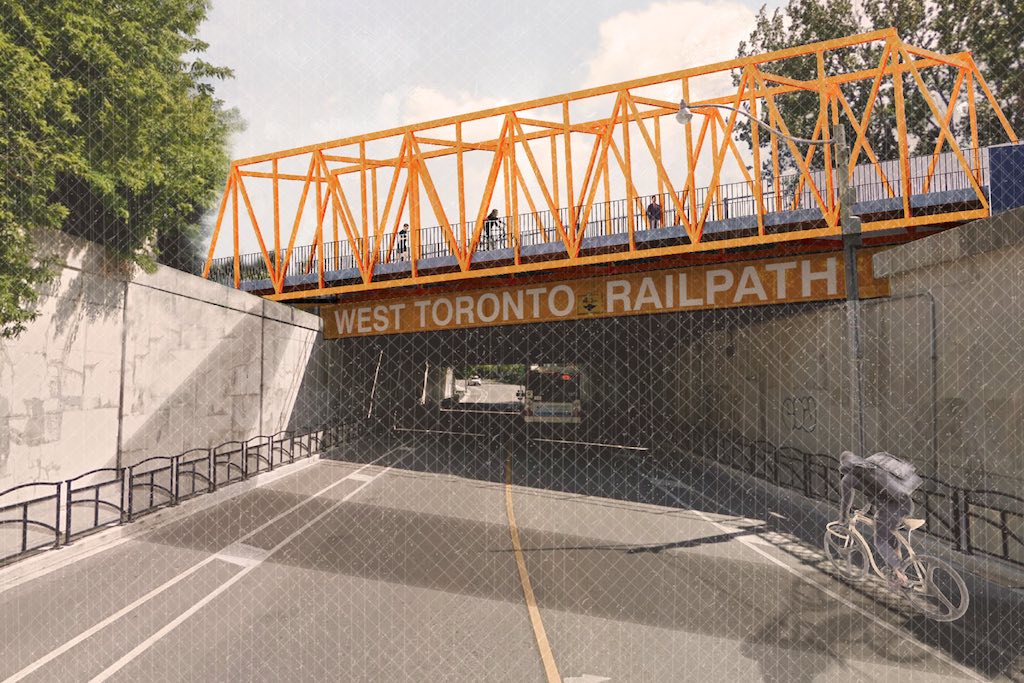Autumn Gear Guide
Find inspiration in our Gear Guide that will keep you out on your bike through wind or rain.
Download NowThe announcement of the West Toronto Railpath extension has stirred excitement among cyclists in the city as it connects a vital west-end artery to provide a seamless and safe slice of cycling sans cars. But it’s also sparked controversy due to its soaring costs. What was once estimated at $23 million in 2016 has ballooned […]
The announcement of the West Toronto Railpath extension has stirred excitement among cyclists in the city as it connects a vital west-end artery to provide a seamless and safe slice of cycling sans cars. But it’s also sparked controversy due to its soaring costs. What was once estimated at $23 million in 2016 has ballooned to a staggering $150 million, raising eyebrows and questions about the city’s financial stewardship.
In early August, Toronto’s Mayor Olivia Chow, along with federal MP Julie Dzerowicz and Councillor Alejandra Bravo, proudly announced that the City of Toronto and the Government of Canada would jointly fund the extension. The federal government committed $23 million from its Active Transportation Fund, while the city would shoulder the remaining $125.7 million. The project promises to double the length of the existing 2.1-kilometer trail, adding an additional two kilometers from Dundas Street West at Sterling Road to Abell Street at Sudbury Street, complete with four new pedestrian-cycle bridges.
On the surface, the extension seems like a dream come true for urban cyclists. It will connect commuters to key transit hubs like the Bloor GO Station and the future King-Liberty Station, while also expanding safe, car-free routes for pedestrians and cyclists in Toronto’s west end. The project is heralded as a critical component of the City’s Cycling Network Plan, which aims to make active transportation more accessible and sustainable.

Cycling on the West Toronto Railpath
However, the massive cost increase has sparked a wave of criticism.
City councillor Josh Matlow has been one of the most vocal critics, calling the new price tag “unreasonable,” although he points to an unreasonable and not-transparent cost estimate from provincial agency Metrolinx as the true culprit
In a CBC article, Matlow points out that the original estimate did not account for numerous construction-related costs, including property acquisition, utility relocations, noise walls, and engineering services, as well as unforeseen price hikes due to the COVID-19 pandemic. “Anywhere around the world, for that amount of money they could build rapid transit on two kilometers, rather than just a walking trail,” he remarked, highlighting the staggering cost compared to similar projects globally.
The West Toronto Railpath is a vital recreational trail for local residents who have waited too long for the extension to Parkdale & Queen West. We need to move forward with the project, but the current price tag of $150M for Metrolinx to build a 2km at-grade path is outrageous… pic.twitter.com/ev56KiiszJ
— Josh Matlow (@JoshMatlow) August 13, 2024
Despite the backlash, project proponents, including Councillor Bravo, argue that the extension is a necessary investment. Bravo emphasized that the Railpath is more than just a trail—it’s a crucial link in the city’s active transportation network, providing a safe route for cyclists and pedestrians alike. She acknowledged the high cost but expressed hope that the bidding process might drive down the final price.
“I want to make sure that we see that number coming down,” Bravo said, adding that the project has been in the works for over a decade and is essential for connecting communities.
For cyclists, the West Toronto Railpath extension is a double-edged sword. It represents a significant step forward in creating a more connected and bike-friendly city, but the steep price tag has some questioning whether it’s worth the investment.

Rendering of the Lansdowne Avenue Bridge
As construction begins in mid-2025, the debate is likely to continue, possibly reflecting the challenge of balancing infrastructure improvements with fiscal responsibility. Possibly the costs will have been overstated by Metrolinx, an agency that doesn’t have the best reputation when it comes to forecasting anything. Whether the Railpath extension will be seen as a visionary project or a costly misstep remains to be seen, but one thing is certain: it has put the spotlight on the complexities of urban cycling infrastructure in Toronto.
Find inspiration in our Gear Guide that will keep you out on your bike through wind or rain.
Download Now
Leave a comment